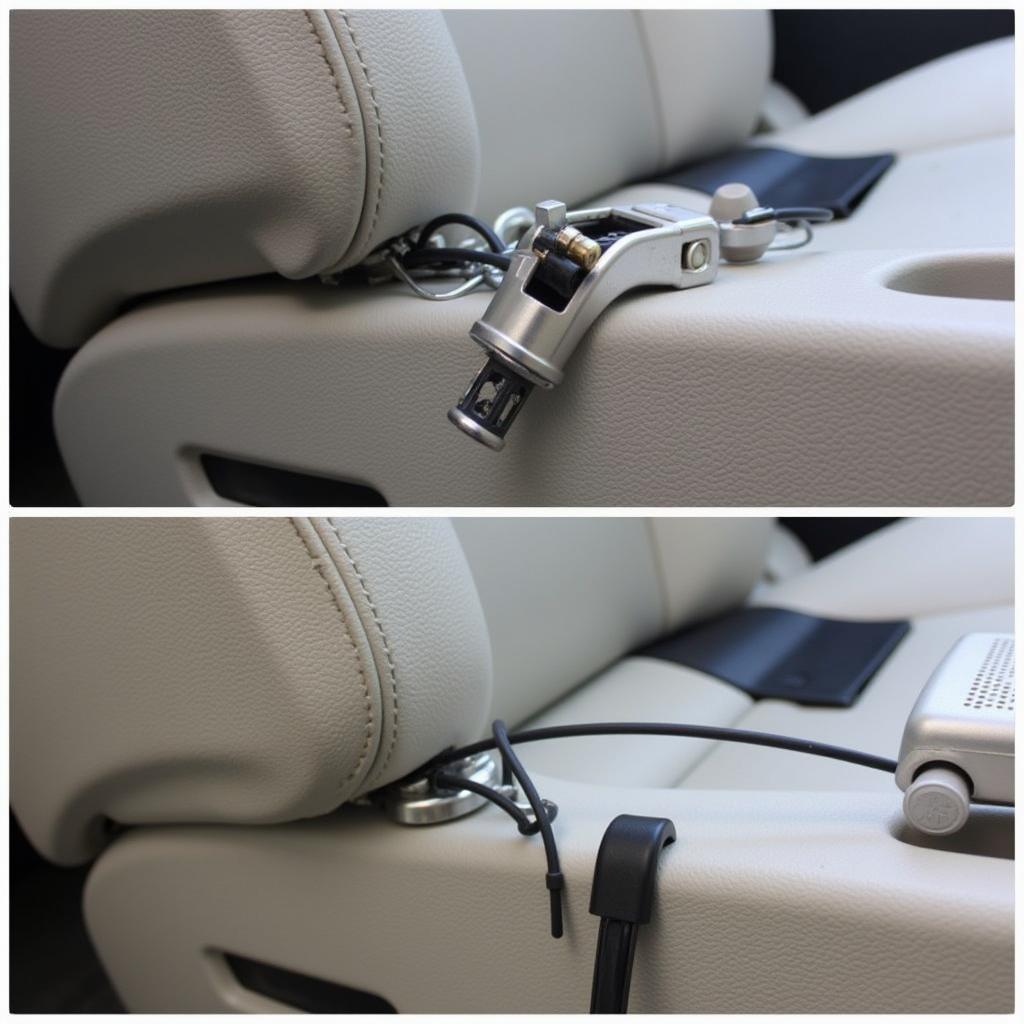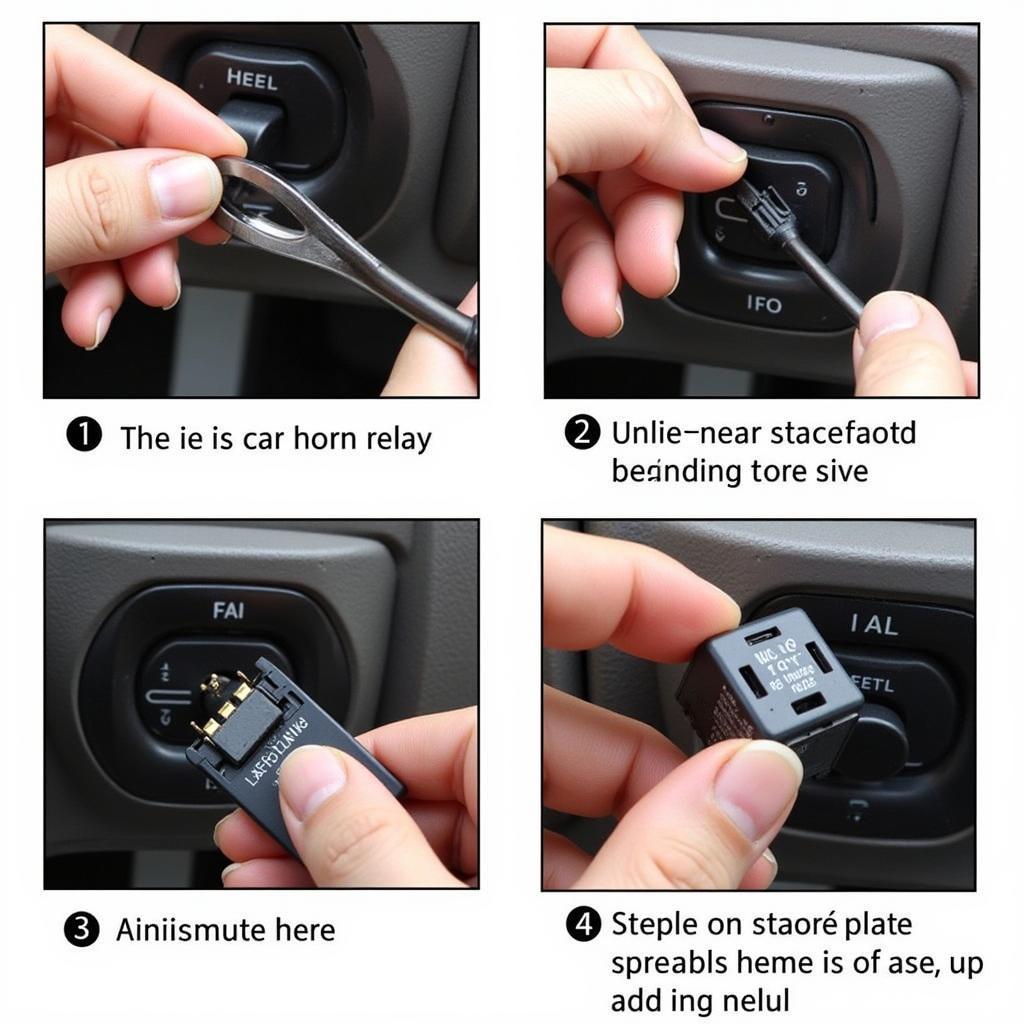Electric cars are revolutionizing the automotive industry, but like any technology, they come with their own set of challenges. Understanding these potential problems with electric cars is crucial for both owners and mechanics. This article will delve into the most common issues, offering practical solutions and expert insights to help you navigate the electric vehicle landscape.
Range Anxiety and Charging Infrastructure
One of the most significant problems with electric cars revolves around range and charging. While range is constantly improving, the fear of running out of power, known as “range anxiety,” remains a concern for many potential buyers. This anxiety is often compounded by the limited availability of charging stations, especially in certain areas.
What fuels range anxiety? Several factors can impact an EV’s range, including driving style, temperature, and terrain. Aggressive acceleration and high speeds deplete the battery faster, while cold weather can significantly reduce its overall capacity.
Addressing this problem requires a multi-faceted approach. Planning routes with charging stops, utilizing apps that locate charging stations, and investing in home charging solutions can alleviate range anxiety. Furthermore, the continued expansion of public charging infrastructure is essential to overcoming this hurdle.
Battery Degradation and Lifespan
Another key concern regarding problems with electric cars is battery degradation. Like any rechargeable battery, EV batteries lose capacity over time, leading to a reduced range. Factors like high temperatures, frequent fast charging, and deep discharges can accelerate this degradation process.
How can you mitigate battery degradation? Avoiding extreme temperatures, utilizing slower charging methods whenever possible, and maintaining a moderate state of charge can help prolong battery life. Additionally, some manufacturers offer battery warranties that provide coverage for a certain period or mileage, offering peace of mind to owners.
Maintenance and Repair Costs
While electric cars generally require less maintenance than traditional gasoline vehicles, they are not entirely maintenance-free. Problems with electric cars can still arise, and specialized technicians are often required for repairs. The cost of replacing a battery pack, for instance, can be substantial.
What are some common maintenance needs? Regular tire rotations, brake inspections, and coolant system checks are still necessary for EVs. Furthermore, the battery pack and electric motor require periodic inspections and potential repairs.
“Regular maintenance is crucial for maximizing the lifespan of any vehicle, including electric cars,” says Dr. Emily Carter, Automotive Engineer at Future Mobility Solutions. “While EVs may have fewer moving parts, the components they do have are sophisticated and require expert care.”
Software Glitches and Connectivity Issues
As electric cars become increasingly reliant on software, the potential for software glitches and connectivity problems rises. These issues can manifest in various ways, from minor annoyances like infotainment system malfunctions to more serious problems affecting the vehicle’s performance.
How can you troubleshoot these problems? Over-the-air software updates can often address software glitches. For connectivity issues, checking the vehicle’s internet connection and ensuring the software is up-to-date are good starting points.
Cost and Resale Value
The initial cost of an electric car can be higher than a comparable gasoline vehicle. However, government incentives and lower running costs can offset this difference over time. Resale value, while improving, can still be a concern for some buyers.
“The electric car market is evolving rapidly,” notes Mr. David Lee, Senior Automotive Analyst at GreenTech Insights. “As technology advances and battery prices decrease, we expect the cost and resale value of EVs to become more competitive with traditional vehicles.”
Conclusion
Problems with electric cars exist, but they are often overshadowed by the numerous benefits these vehicles offer, including reduced emissions, lower running costs, and a quieter driving experience. By understanding the potential challenges and taking proactive steps to address them, you can enjoy the many advantages of electric car ownership. For any assistance or further information, connect with AutoTipPro at +1 (641) 206-8880 or visit our office at 500 N St Mary’s St, San Antonio, TX 78205, United States.
FAQ
- What is the average lifespan of an EV battery?
- How often should I charge my electric car?
- Are electric cars more expensive to insure?
- What are the environmental benefits of driving an electric car?
- How does cold weather affect electric car performance?
- What are the different types of EV charging stations?
- What government incentives are available for electric car buyers?







Leave a Reply